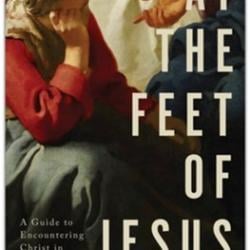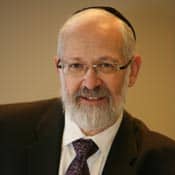Love or hate Amy Chua's parenting style, clergy ought to be listening to her message, and roaring their message instead of whispering it. When you demand too little of your flock, you are going to get it.
After a few weeks of a national debate about Tiger Mom, we emerged with a different understanding of the supposed Chinese prescription for producing overachiever kids. Amy Chua, you will recall, became a household name overnight after a Wall Street Journal review of her book, which called attention to some of her most extreme methods. Her story left some parents cheering, and others running to alert Child Protective Services. No TV, no play dates for her kids. Less than an A was not an option. Extracurricular activities had options. Two, to be exact. Either piano, or violin. Choosing neither was not an option. Practice meant hours on end; miss a note, and they practiced till they got it right, even forgoing food and bathroom breaks in the interim. Her kids are concert-grade performers, and applying to the Ivys.
We found out in time that Chua was not a tyrant living vicariously through her children. She was loving (and her kids conceded this), not mean-spirited. She believed that children would gain the most by making hard demands of them, and allowing them to feel the joy of utilizing talent fully and properly. This proved a larger threat than when the article first appeared, because it struck a raw nerve with a generation of American parents who are dimly aware of having perhaps gone too far in being accommodating, non-judgmental, and undemanding of their children. Even parents appalled by Chua's methods had to stop and think. Do wimpy parents produce wimpy children? Should parents set—and enforce—higher goals for their progeny?
While the jury will likely be out for some time regarding parenting styles, guiding adults toward moral living certainly requires strength and conviction. The great prophets of the Bible thundered their messages, even though we know that whispering is often more effective in person-to-person conversation. To be sure, clergy must understand the pressures and challenges facing their congregants. But they cannot be so understanding that they radiate acceptance of moral turpitude, and give implicit license for moral failure. They must be ready to help those dealing with their failures, but not bless them and sanction those faults from the very beginning. Most importantly, there should be no room for equivocation about clear-cut issues of right and wrong, even when—or especially when—others find ways to rationalize away anything. Clergy have the right and the mandate to draw lines and to instruct with clarity, even if they realize that not all will listen.
Hebrew Scripture (Dt. 17:18-19) legislates that a Jewish king must write two copies of the Torah for himself. One goes out to war with him. The other, says the Talmud, remains behind in his private collection. A modern Chassidic leader, Rabbi Shloima Twersky ob"m, asked a fairly obvious question. The function of the travelling Torah is fairly clear. It serves as a constant reminder of the higher law to which the king must submit, along with all his subjects. What good, however, comes from the Torah that is squirreled away in his private vault? Rabbi Twersky explained: As we go off to our private wars, the holy texts that once served as our lodestar get bruised, calloused, and abraded by the struggles of life. Many of the lines change their appearance, if not their entire meaning. We need to have a guide that has remained authentic and unchanged, with which we can compare what we take with us through life.
Too many clergy have been beaten down by failure and defeat—by plain, ordinary "realism." They do not realize how moral vision has blurred with time in the trenches. Instead of inspiring, they coddle. This is tragic for them, and even more tragic for those whom they would lead.
A short while ago, four years of relative calm in Jerusalem was broken by a bomb placed by a terrorist at a bus stop in the center of the city. It killed a British evangelical studying at Hebrew University, and wounded scores of others. Coming only days after the savage killings of five members of a family sleeping in their home, including a three-month-old baby and a five-year-old stabbed twice in the heart for good measure, some groups took note.
One response, from a national church group, was welcome but disappointing. "The bomb that tore through this bus . . . was a murderous assault on all that Christians, Muslims, and Jews deem holy." So far so good. But that quickly turned to a search for motive and cause—and even worse.
"Anger and frustration festers on both sides . . . It's an untenable situation that makes violence inevitable." Is that really so? Is it inevitable that people sin—not only in common, everyday situations, but in mass murder? Should clergy tell people that sin is inevitable?





